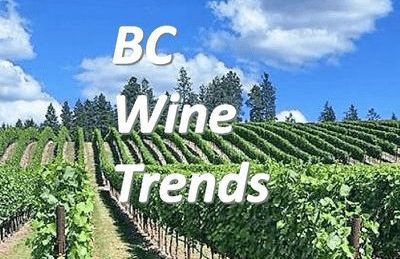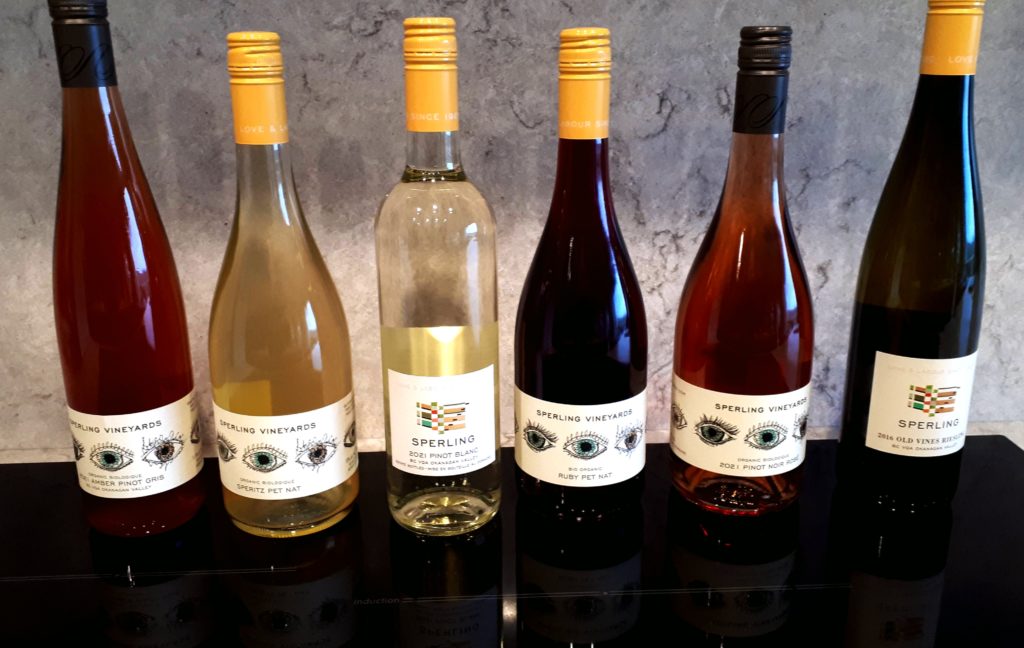
Since 2016, we have been fortunate to taste the extensive portfolio of Sperling Vineyards wines. Some of our favourite BC wine tastings were spent chatting with Ann Sperling under the tent in the middle of the labyrinth. The six wines we tasted this year add to the legacy of leading-edge natural and organic BC wines.
Sperling Vineyards has been Certified Organic Since 2017.
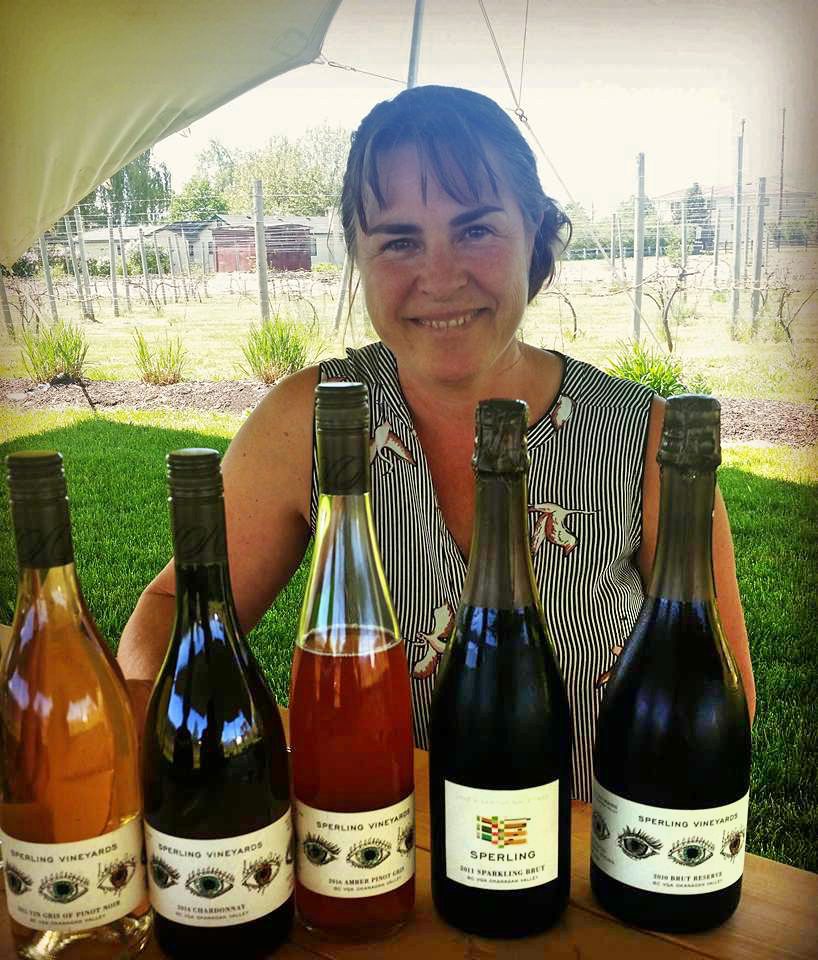
Before going to the tasting notes, please read the following primer on Organic/ Biodynamic / Regenerative terms by the Sperling Vineyards team.
Comparison of Organics, Biodynamics, and Regenerative Agriculture
Winery ownership is a complex business. It’s about agriculture and manufacturing, marketing and retailing. It involves diverse activities from tourism to distribution logistics in a highly regulated and highly taxed environment. Now add to that – climate uncertainty. Talk about living and working with a lot of balls in the air.
We hear a lot of terms around the wine world that may be familiar, but do we know their true significance or intention? Organic, Biodynamics and Regenerative Farming are three terms we’d like to shed light on. We are very familiar with all three at Sperling – our vineyard and winery are certified organic, we use biodynamic practices, and are proud members of Regeneration Canada.
There is overlap between these practices and a few differences, all shown in the image below. Of course, a diagram doesn’t cover every detail but it’s a good starting point and overview of how these practices are interrelated and subtly different.
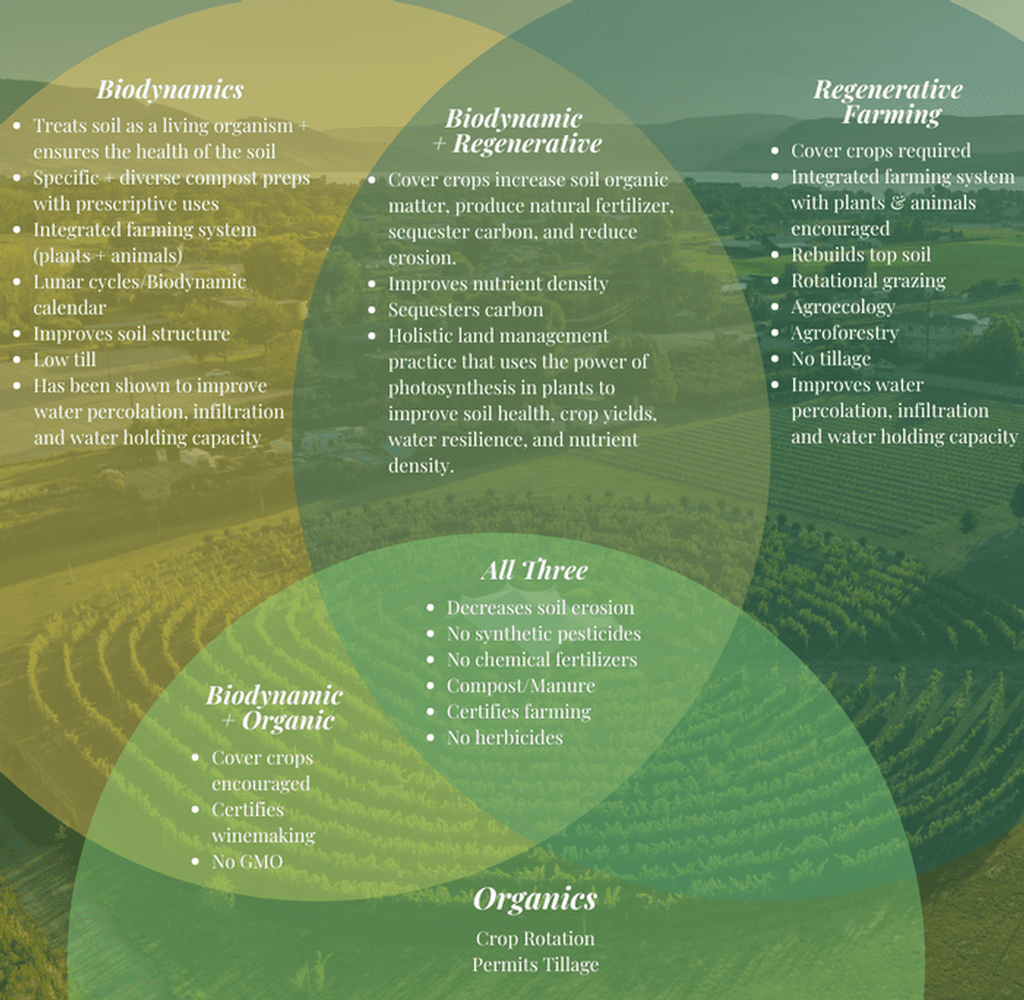
Regenerative Farming
Regenerative Farming is likely the aspect the wine-loving public knows the least about, whereas terms like organic and biodynamic have become more familiar in recent years. Regeneration Canada is a reliable source for good information about these climate-friendly farming practices, where consumers can support and buy products made by regenerative farmers and offers peer-to-peer learning between farmers.
“Regeneration Canada helps get the word out about farmers who are committed to grasslands, permanent cover crops, biodiversity, and farming that benefits the environment instead of degrading it. Our treed perimeters, native bushes, and permanent cover crops support habitat, and sequester carbon from the atmosphere, unlike conventional agriculture with tillage that releases CO2.”
Ann Sperling, Winemaker
Our family has been farming this land for 135 years. We have immense respect for the land our great-grandparents chose for us, and a strong sense of responsibility to work in ways that allow nature’s forces to develop even better conditions for future generations. Regenerative farming focuses on improving and rehabilitating the land, going beyond the status quo. By keeping it covered in green/growing plants year-round and leaving the roots there even under cover of winter, we can optimize photosynthesis using plant power to capture CO2 from the atmosphere and hold it in the soil while increasing soil fertility.
In addition to preventing erosion, undisturbed roots function to permit water to percolate into the soil, allowing more rainfall to be absorbed and held, making it more drought-proof. Those roots form intricate relationships with fungi to transfer minerals and nutrients to our grapevines, reducing or eliminating the need for soil amendments. And super important for our cool climate grape varieties, such as Riesling, and sparkling wines – green, growing cover crops keep the vineyard environment as much as 150C cooler in the middle of hot summer days.
Sperling Vineyards Organic Pinot Blanc ($21)
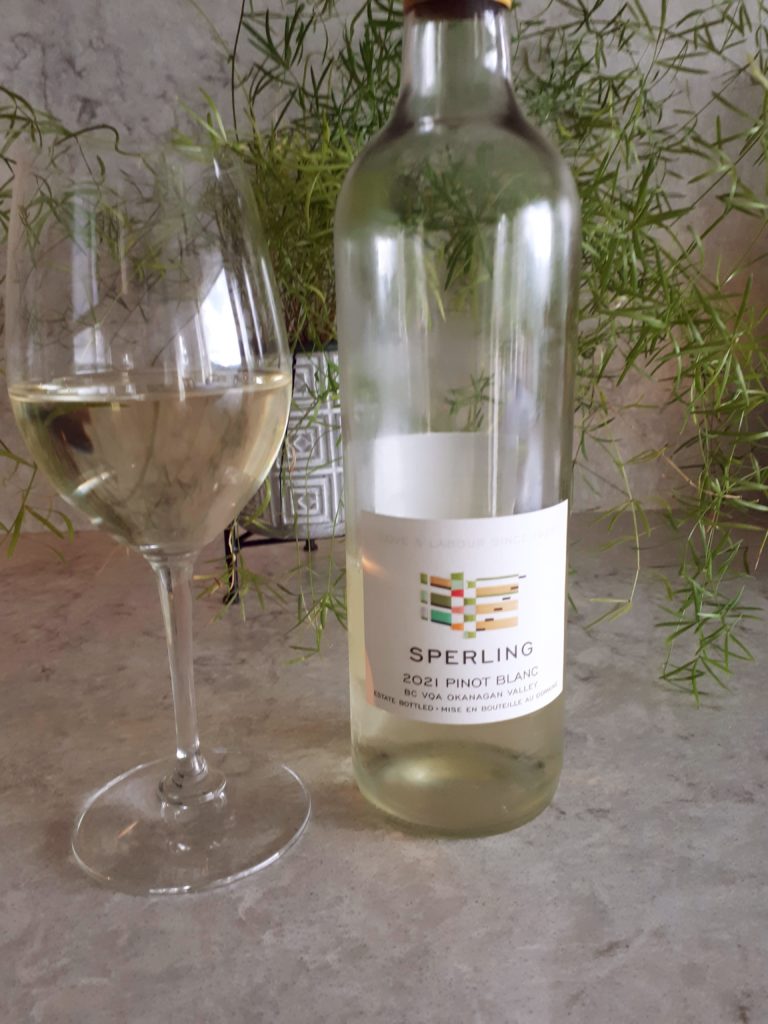
Pinot Blanc grapes are the last to ripen on the Sperling Vineyards’ East Kelowna Slopes estate. The old vines were planted in the 1980s. Hand-harvested, destemmed and soaked for 4 hours before pressing. Slightly settled juice is fermented in stainless steel with non-aromatic yeast to bone dryness.
10% Alcohol / pH 3.3 / TA 6.6 gm/L / RS 4 gm/L
Classic light aromas of lime, honeydew melon and green apple. The bone-dry wine kicks off with vibrant acidity leading to flavours of green apple, pineapple and lemon zest, light to medium body with an elegant finish. The depth and concentration show in the wine. 92 Points
Pairs well with shucked oysters, butter lettuce salad and sourdough bread. Enjoy with delicate seafood and light cheeses.
Sperling Vineyards Organic Speritz Pet Nat ($30)
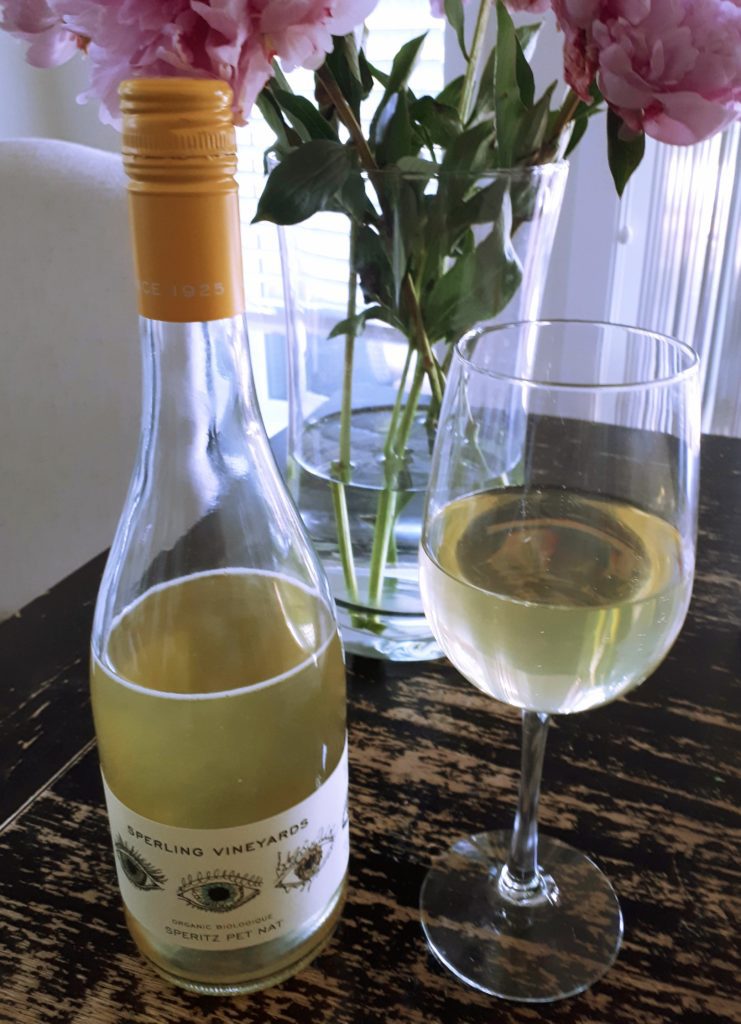
Refreshing and lovely, wild fermented from Perle de Csaba planted in 1934.
Pét-Nat is short for pétillant naturel, which is simply French for “naturally sparkling” – and that’s essentially what it is! This lightly fizzy wine has gained a bit of buzz lately with growing popularity in the natural/organic movement and in more rudimentary methods of winemaking, but people have been sipping on it for ages.
The perfect sparkling speritz, yeasty, hoppy aromas with rose petal and lemon blossom and mineral undertones. Unfiltered, so opaque with effervescence. Very pale straw core. On the palate, medium acid, light body flavours of Anjou pear, key lime, and Meyer lemon with minerality and floral notes. Serve well chilled. A refreshing hot day sipper! 10 % Alcohol. 89 Points.
For food pairings try with a charcuterie plate and for beer drinkers fried pub fare, maybe fish and chips.
Sperling Vineyards Organic Ruby Pet Nat NV ($30)
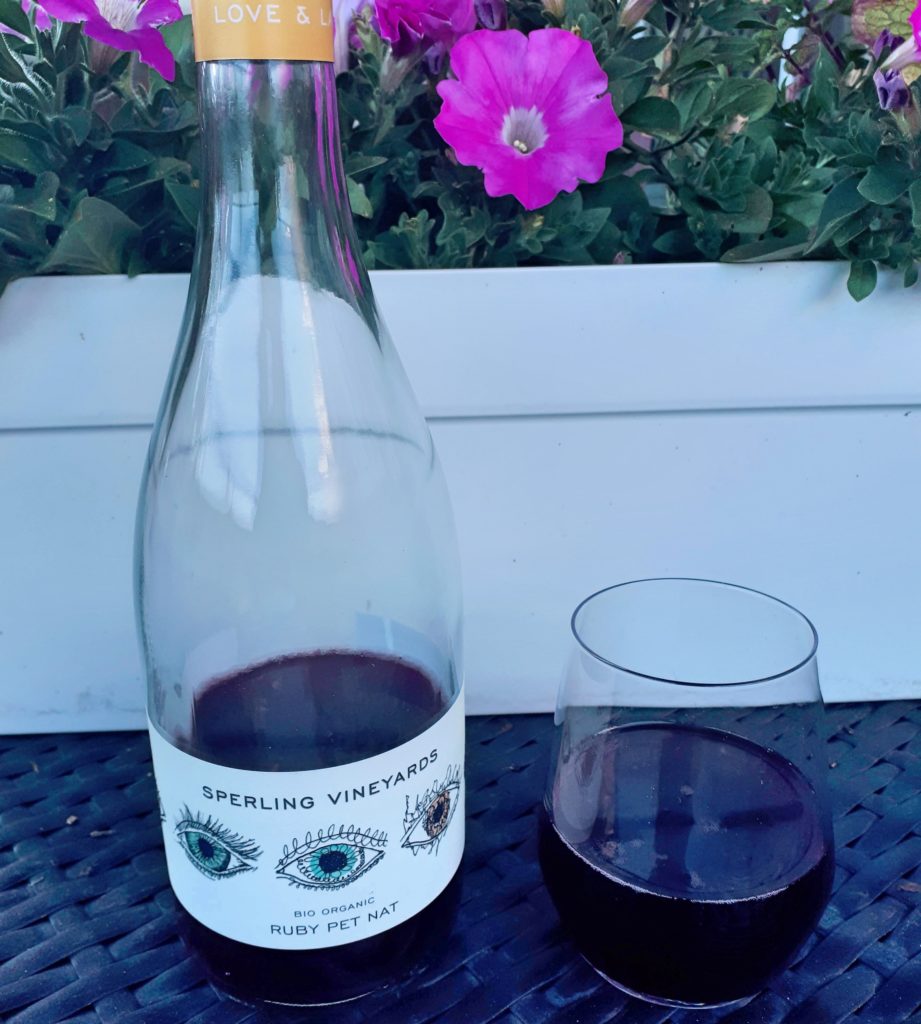
The Marechal Foch whole clusters and berries for 5 days, then pressed and blended in some Pinot Noir. Fermentation finishes to complete dryness in the bottle, trapping 1.5 atmospheres of bubbles. Naturally occurring sediment remains in the bottle.
A unique dry natural ruby sparkler that brings back memories of the wonderful sparkling shiraz wines I enjoyed in my youth Downunder! Aromas of dark berries and flavours of red cherry, blueberry and chocolate with a rich juicy mouthfeel. 89 Points
The wine pairs excellently with pizza and pasta with rich tomato sauce.
Sperling Vineyards Old Vines Riesling 2016 ($35)
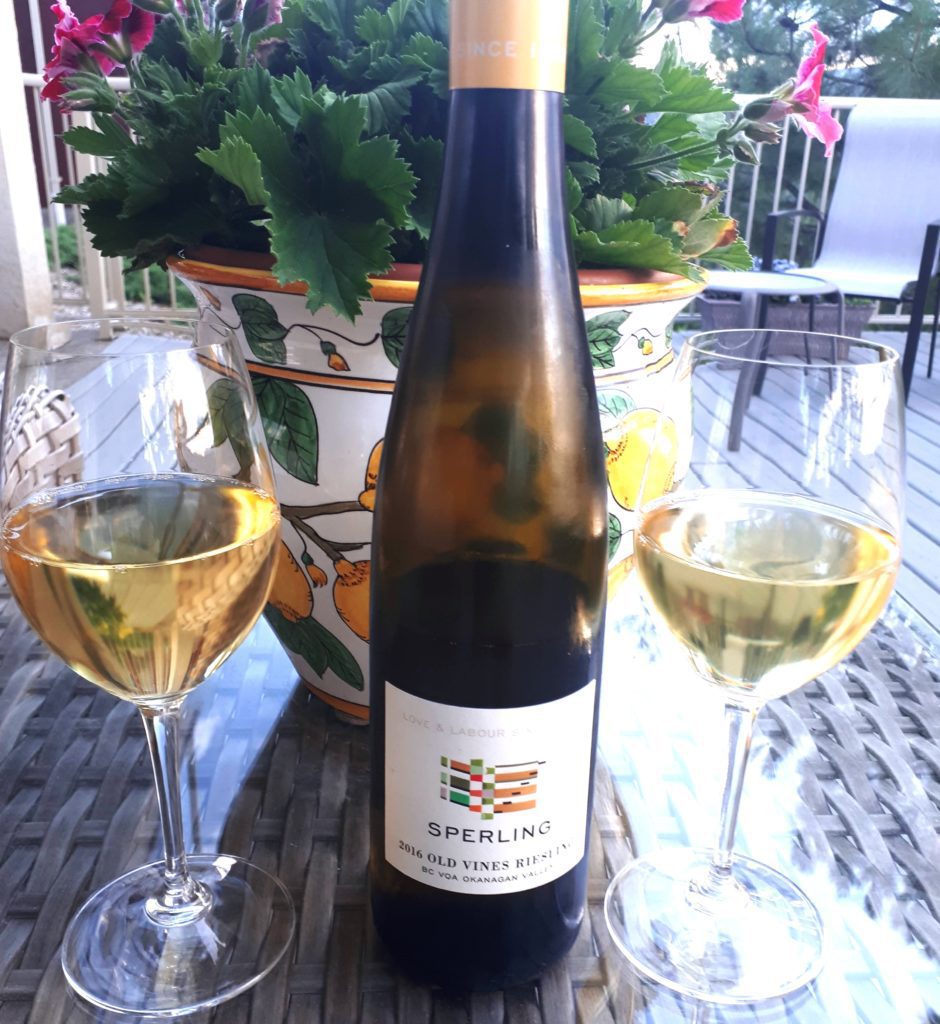
Not released until 2 years in the bottle have passed. Most years, harvested at 20.5 to 21.5 Brix and 10 g/L acidity. Fruit hand-harvested cool in the late fall, then the bunches were sorted and destemmed with a 4-6 hour cold soak before gentle pressing. Slightly settled juice is fermented cool with non-aromatic and wild yeast in stainless steel to desired dryness when fermentation is halted.
This wine is the jewel of the vineyard with the fruit coming from the 1978 Riesling block. The golden straw-coloured wine has bright acidity and is meant to be cellared. There is lemon zest on the nose with floral notes and a hint of petrol. Flavours of green apple, key lime and white peach with a creamy, richly textured mouthfeel and a slight mineral backbone. This wine has great length and complexity. Okanagan Riesling at its finest! 93 Points.
Sperling Vineyards Organic Vision Pinot Noir Rosé 2021 ($25.00)
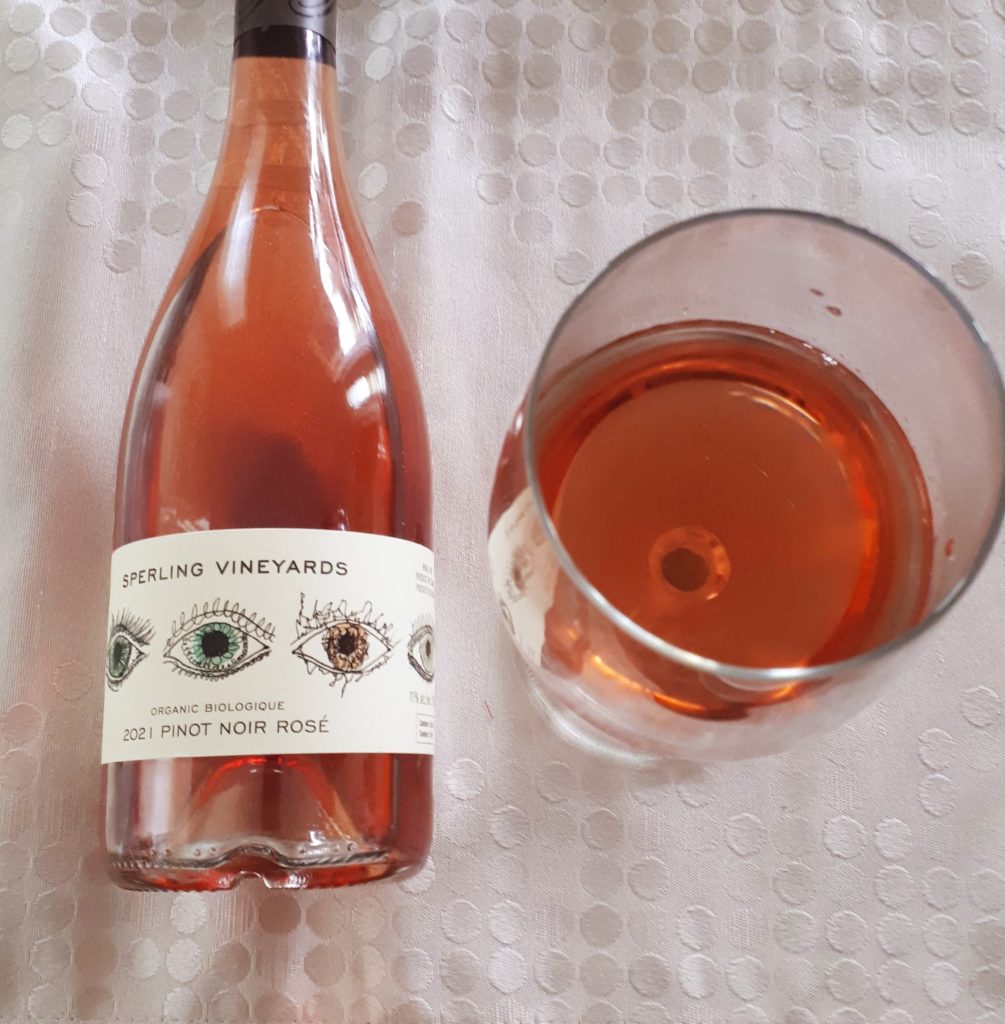
Vision Series Rosé – made from Pinot Noir clone 777, this block is favoured for its slightly darker-skinned berries and strawberry and bramble fruit aromas. Hand-harvested grapes were gently whole-clusters pressed, and fermented in two barrels. Bottled dry in March under screwcap to capture the fresh berry profile of this west-facing block of vines. Enjoy as a starter and continue into your main with herb-infused, steamed mussels or your favourite seasonal risotto.
Alcohol: 12%. The rosé has a lovely dark salmon hue. The subtle aromas of fresh strawberries and crab apples greet you when you open this wine. The dry juicy Rosé is packed with red cherries, cranberries and raspberries. This vibrant wine has notes of wet stone with bright acidity and minerality. 92 Points
Sperling Vineyards Natural Organic Amber Pinot Gris 2021 ($32)
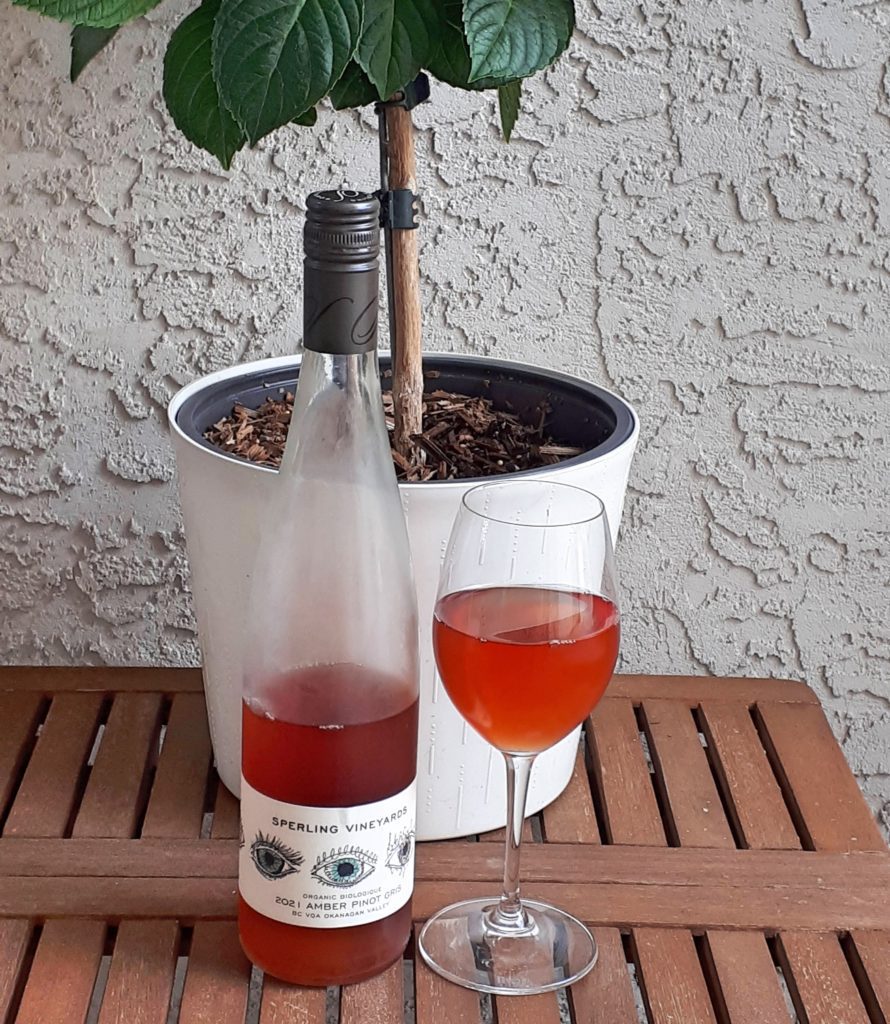
“We’ve always had a holistic approach to our winemaking using native and organic yeasts but each time we make this wine, we dig deeper into a grape that everyone making wine or drinking it in the Okanagan thinks they know. We asked, what happens when you take not only 65% of the Pinot Gris grape and ferment it, but 95-100%. So we included whole clusters, and stemmed grapes in a ferment of wild yeast and wild malolactic, taking sugars and malic acid to complete dryness. And then what if you press and settle rather than fine or filter – and leave the natural structural elements of the grape intact and not ameliorate with additives, such as sulphites.
The result is a whole expression of Pinot Gris vines that have adapted themselves over 20 years to our site. It is not an expression of vessel, but a savory expression of the complete grape. It may be an umami expression through the grape, but there’s no denying that this wine loves food.”
When the wine is opened in the tasting room it can be sampled over a week, the wine changes but doesn’t fall apart! The tannins keep the wine vital. One of the things that annoys wine writers is that the wine changes over time! This just shows how much life there is in the wine.”
Ann Sperling, Winemaker
This is a wine for natural wine enthusiasts and beer drinkers that loves IPA! Make sure the wine is chilled and allowed to open in the glass for at least 30 minutes before drinking.
Aromas of apricot, apple skins, orange zest and just a hint of Earl Grey tea. Medium-bodied with a wonderfully textured mouthfeel. Citrus, peach pit, and orchard fruit on the dry and concentrated palate that ends with a slightly bitter and medium finish.
A perfect example of how a natural food-friendly wine can excel! 92 Points
Conclusion
To order these excellent BC Wines please visit the Sperling Vineyards website
For the details on earlier Sperling Vineyards Releases please click on the following links 2020, 2019, 2018, 2017 and 2016
